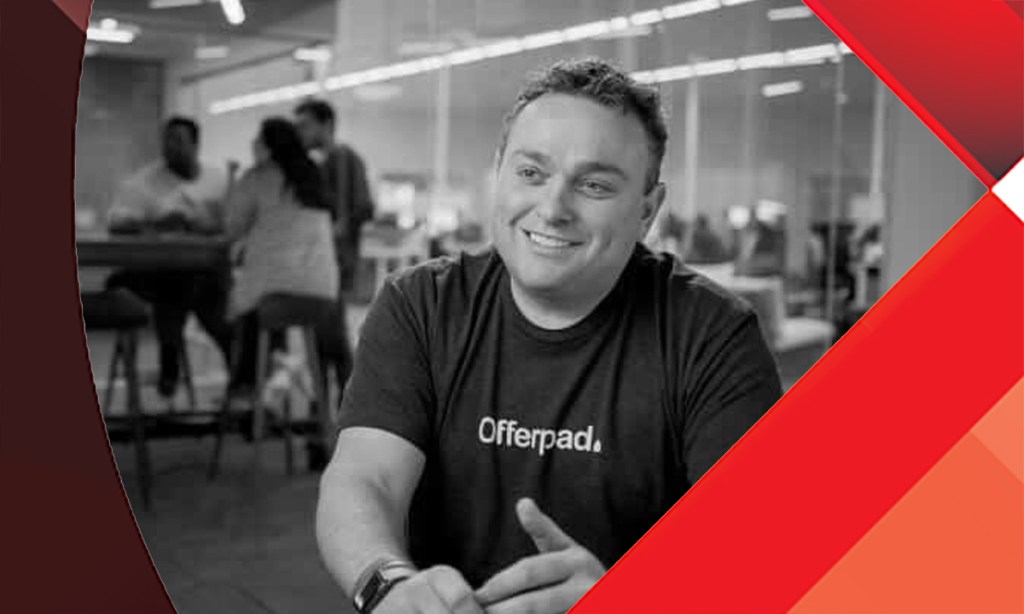
When Zillow announced last week that it was shutting down its iBuying business and was desperate to offload $3.8 billion in unsold inventory, the grave dancers appeared almost instantly.
Zillow’s failure was not simply a matter of an algorithm gone haywire; it was an indictment of the entire business model. The economics of iBuying don’t work at scale, not profitably anyway, the naysayers declared.
Brian Bair, the founder and CEO of Offerpad, says that simply isn’t true. It can be done, he claims, and sustainable profits can be achieved so long as strong business fundamentals are in place – local industry expertise, robust technology, strong operational know-how, and adaptable-but-rigorous underwriting.
“I think the news that came out was shocking to a lot of people,” Bair said on Wednesday’s third quarter earnings call, in which the iBuyer sold 1,673 homes across 21 markets, down from 2,025 in Q2. “What I keep saying – and I’ve tried to shout this from the rooftops for years – is that it comes down to execution and operations and logistics. This is as much a logistics business as much as it is a real estate technology company. So, like any business, the execution is going to be key.”
Now, to be clear, Spencer Rascoff-backed Offerpad was not profitable in the third quarter. The startup suffered a net loss of $15.3 million, about $13.2 million of which was incurred through the merger with a special purpose acquisition company and subsequent IPO.
But Offerpad does have some promising numbers that suggest iBuying can be done at scale, even in an erratic housing market.
For starters, it turned a profit of $9.2 million in the second quarter. Its chief rival, Opendoor, has never reported a quarterly profit. Second, over 99% of the company’s inventory in the third quarter was owned for less than 180 days. And historically, Offerpad says it has achieved less than 1% variance between its aggregated estimate and actual sales price.
“Our underwriting process combines a unique mix of leading technologies supporting our advanced asset valuation models and perspective from our in-house local real estate experts,” Bair said in prepared remarks on the earnings call. “We segment homes based on the individual risk assessments. And we underwrite to a specific return on investment and based on the level of risk. The components of our unit economics are incorporated into our underwriting process, in addition to market dynamics and ancillary service offerings. The process is comprehensive and allows us to maintain a high level of underwriting accuracy even while navigating shifts in market dynamics, such as moderating home price appreciation.”
CFO Mike Burnett added that Offerpad has done “a nice job” of managing its portfolio in recent months. “We’ve spent a lot of time on the underwriting side,” he said. “We knew we would see cooling conditions.”
One larger area of concern is the ongoing supply chain issues such as lumber delivery, which has proved difficult for iBuyers, homeowners and homebuilders alike. Company executives said supply chain issues led to a five-day increase in renovation turnarounds in the third quarter. It’s only because the company’s renovations arm is in-house that Offerpad could swing hammers and mitigate carrying cost impacts, they said.
In the third quarter, Offerpad’s revenue improved to $540.3 million from $378.6 million in the second quarter. Gross profit – which does not include operational expenses like those in-house renovators – also ticked up to $53.1 million from $50.9 million in the prior quarter.
However, contribution profit after interest per home sold, a metric to measure unit economics, fell to $22,700 from $31,500 in the second quarter.
Offerpad has $1.5 billion in credit lines and another $125 million in mezzanine capacity, which will help fuel its growth into new markets. Offerpad added seven new markets in 2021 – including four in the third quarter – and expects to add more in 2022. The company operates in 21 markets.
IBuying observers such as real estate industry consultant Mike DelPrete single out Offerpad as perhaps creating a more sustainable business model for ibuying. Principal rival Opendoor on Wednesday announced that it notched $2.3 billion in revenue and sold 5,988 homes in the second quarter, a 72% jump from the prior quarter. Opendoor reported a $57 million loss in Q3.
Correction: A prior version of this story misspelled CEO Brian Bair’s name.






